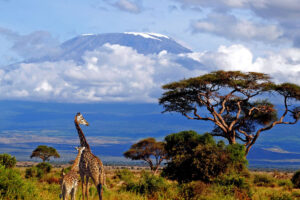Human Rights Watch has accused police guarding the North Mara Gold Mine in northern Tanzania of complicity in the deaths of at least six people and injuries sustained by several others in clashes around the mine in the past four months.
The rights watchdog called on Tanzanian authorities to promptly launch “independent and impartial investigations” into the incidents, the latest in a series of similar allegations involving security operations at the mine since 2014.
The mine, which is located in Mara region close to the border with Kenya, is operated by Canadian multinational Barrick Gold with the Tanzanian government holding joint shares and providing the security as part on their agreement.
Read: Tanzania signs new implementation deal with Barrick
This is not the first time local police have been accused of using excessive force, including killings, to prevent artisanal miners from conducting their own small-scale operations in and around the premises.
According to rights groups and community members, police officers have been responsible for beating, shooting, torturing, and detaining without charge residents of areas near the mine and dumping areas.
The police in turn have accused the residents of illegal invasion and stealing from the mine and its surrounding waste rock dumping sites, but have made no arrests so far.
“The growing number of unaccounted for killings connected to Tanzania’s North Mara Gold Mine reflect a worrying pattern of impunity for abuses that needs to be addressed,” said Oryem Nyeko, senior Tanzania researcher at Human Rights Watch in a statement from Nairobi on Wednesday.
“The Tanzanian authorities should not sweep these deaths under the rug but should ensure that those responsible are held to account,” he added.
Court case
Barrick Gold, meanwhile, told HRW this week that it did not have “any de facto control” over the local police and their actions.
“The police are requested to enter the mine site to assist in upholding law and order when the company employees’ lives are in danger. We are not in any way involved or aware of police activity in the community nor can we be responsible or accountable simply because such activity occurs in geographical proximity to the North Mara Gold Mine,” HRW quoted Barrick as saying.
Barrick is currently facing a court case in Canada where a group of 21 Tanzanians is suing the company over alleged complicity in extrajudicial killings and beatings of residents by police assigned to the North Mara mine.
The petitioners claim that the company has converted the police operating in and around the mine “into a private and heavily armed security force.” A preliminary hearing of the case, which was filed in 2022, has been scheduled for October this year, according to HRW.















